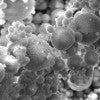
US News grad school rankings give high marks to Rice programs
A total of 19 graduate programs at Rice University rank among the nation's top 25 in their categories in the latest edition of U.S. News and World Report’s “Best Graduate Schools.”

US News grad school rankings give high marks to Rice programs
A total of 19 graduate programs at Rice University rank among the nation's top 25 in their categories in the latest edition of U.S. News and World Report’s “Best Graduate Schools.”

Wind, solar could replace coal power in Texas
A fraction of the wind and solar projects already proposed in Texas could eliminate the state’s remaining coal power plants and their emissions, according to Rice University engineers.

Gas flares tied to premature deaths
Rice engineers suggest that flaring of natural gas at oil and gas fields in the United States, primarily in North Dakota and Texas, contributed to dozens of premature deaths in 2019.

Inaugural class of Rice Innovation Fellows announced
The Provost’s Office and the Liu Idea Lab for Innovation & Entrepreneurship (Lilie) have announced the inaugural class of Rice Innovation Fellows, a program that will provide educational and financial support to the next generation of scientist- and engineer-led spinout ventures.

Environmental champions win Rice grants
The Rice University Sustainable Futures Fund backs six projects to help bolster the planet’s environmental health.

Rare earth elements await in waste
Rice University scientists applied their flash Joule heating process to coal fly ash and other toxic waste to safely extract rare earth elements essential to modern electronics and green technologies.

Now you don’t see it … and now you do
Scientists and engineers from Rice University and the Kuwait Institute for Scientific Research discover fluorescence from silicon nanoparticles in cement and show how it can be used to reveal early signs of damage in concrete structures.

Black and Hispanic communities bore disproportionate share of Texas’ early COVID-19 deaths
Texas state officials did not publish the race and ages of COVID-19 victims in early 2020, but a county-level statistical analysis spearheaded by Rice University undergraduates in collaboration with university faculty has found deaths statewide were disproportionately concentrated in Black and Hispanic communities.

New models assess bridge support repairs after earthquakes
Civil engineers develop a computational modeling strategy to help plan effective repairs to damaged reinforced concrete columns.

Rice’s Technology Development Fund backs faculty projects
Nine projects proposed by Rice researchers have been granted seed funding by Creative Ventures' Technology Development Fund.

Microplastic pollution aids antibiotic resistance
Microplastics dispersed in the environment may enhance antibiotic resistance. A study led by Rice University found the chemical-leaching plastics draw bacteria and other vectors and make them susceptible to antibiotic resistant genes.

Rice conference on natural disasters draws international panelists, attendees
The Nov. 19-20 conference focused on narratives around natural catastrophes in the Americas and Circum-Caribbean

Alvarez, Mikos elected to Chinese Academy of Engineering
Pedro Alvarez and Antonios Mikos have been elected to the Chinese Academy of Engineering.

Rice names Reginald DesRoches as next president
Reginald DesRoches, who is now serving as the university’s provost, has been named as the next president of Rice University.

National Academies Gulf Scholars Program launches at Rice
A new National Academies Gulf Research Program will expand the opportunities Rice students have to study and impact the most pressing environmental, health, energy and infrastructure challenges in the Gulf of Mexico region.